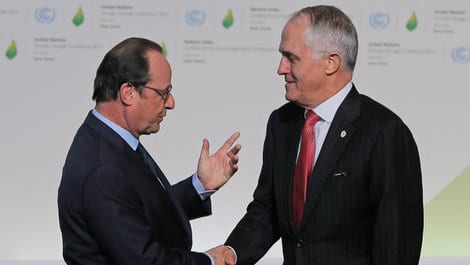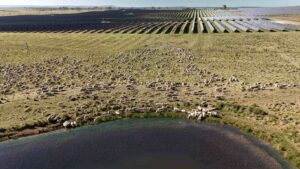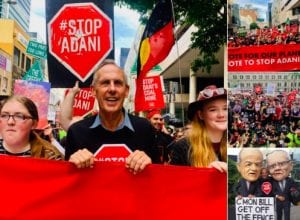
Australia has a final chance to shake its reputation as a global climate laggard and position our economy for a boom in growth with Foreign Minister Julie Bishop taking the reins for the final week of climate negotiations in Paris.
The agreements set this week will give smart nations an opportunity to test cutting edge ideas, and could potentially enable Australia to start attracting more of the world’s leading companies and brightest thinkers to our shores. Unfortunately, the first week of negotiations suggests that Australia is on track to miss this unique opportunity to seize the lead and position Australian business to capture a share of the trillions now being invested in the shift to a low carbon economy.
Given there is virtually no chance of Australia meaningfully changing it’s 26-28% reduction target at this late stage, the Future Business Council has compiled three simple yet significant actions Australia could announce instead. These actions would boost our credibility, play to our economy’s natural advantages and prepare our business community for future growth.
The first action is a simple one: Announce that Australia’s economy is open for climate business.
Officially welcoming companies serious about tackling climate change will make Australia the natural testing ground for the new business models, science and innovative technology needed to limit climate change and to adapt to the impacts.
The announcement will need to be backed up with serious policy measures to attract these leading companies to our shores. Doubling the R&D tax concession for climate resilient and low carbon research, removing the legislation to abolish ARENA and the Clean Energy Finance Corporation, and fast tracking investment into promising low carbon technology produced by the CSIRO and universities where there are committed business partners should all be part of the mix.
Secondly, Australia should announce a $1 billion dollar investment into the establishment of eight climate focussed industrial research precincts. Each precinct will specialise in a specific impact area and be hosted in a state or territory with a depth of expertise and existing business exposure. For example, climate resilient agriculture in Queensland, high efficiency, low carbon manufacturing in Melbourne, or climate resilient buildings and infrastructure in Sydney.
Investments in industrial research precincts are a proven strategy that capitalise on the benefits of clustering and accelerate innovation by better connecting research from the university community with the agility of entrepreneurs and the business community.
Finally, Australia needs to announce a phase-out timetable for fossil fuel subsidies. Tax exemptions and rebates for the use of fossil fuels are the 21st century equivalent to the protectionism and tariff walls rife throughout Australian industry until the 1980s. They protect inefficient business and are artificially reducing the competitiveness of the next generation of companies that will generate the future jobs and economic prosperity for Australia.
It will take extraordinary leadership by a nation or number of nations to catalyse the shift to a climate safe world.
Australia has a proud history of extraordinary international leadership having led on most major issues throughout the 20th century, from women’s suffrage, to Universal Declaration of Human Rights and the lifting of tariffs and outdated industry protection. We can use the Paris Climate Conference as platform to reclaim our traditional role as a constructive middle power and position Australia to prosper from the coming boom in demand for climate resilient business and the low carbon economy.
Tom Quinn is the Executive Director of the Future Business Council and a keynote speaker at the Purpose conference in Sydney on 7-8 December.






